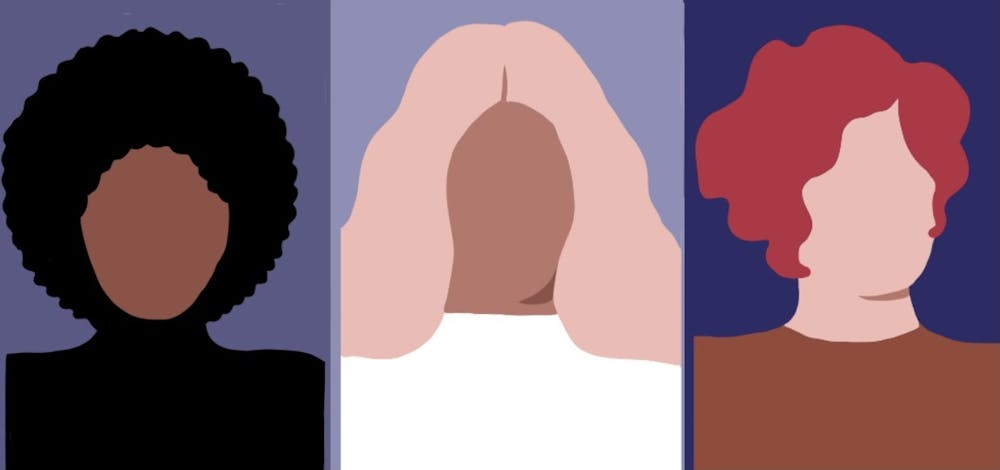I am biracial. My dad is Black and my mom is white. Biracial people in America occupy complex and dynamic roles that often result in struggles with their racial identity. The theory of mixed privilege posits that biracial people are more easily accepted into popular American culture — thus they should serve in a supportive position for darker-skinned Americans. But biracial people should not be limited to a supporting role. They experience their own unique and nuanced turmoil.
I epitomize the supposed theory of mixed privilege. I am primarily white passing. So, the discrimination I experience is different from the discrimination dark-skinned Black people experience. For example, when I proclaim the necessity of racial equality, my concerns are attended to. My passion is not disregarded as the excessive complaints of an angry Black woman — a racist caricature with an extensive history. This assumed privilege implies the responsibility that biracial people, especially light-skinned biracial people, should use their platform to support the Black community. For instance, in racially tense areas such as Charlottesville, biracial individuals can fulfill a much-needed role as mediator between white and Black groups in reaffirming the need for race reform.
Though I recognize the logic of this responsibility, it is much easier said than done. I experience intense concern over inadvertently taking space away from Black women, who experience unique and traumatic discrimination and have been historically silenced. My fears are difficult to quantify. My biracial identity prevents me from feeling Black enough — so I feel improperly equipped to speak on behalf of a Black community. The solution to this problem seems easy, but is difficult to balance. An appropriate response appears to be biracial people in a supporting role, using their privilege to widen rather than replace Black representation.
However, these solutions are based on an acceptance of the existence of mixed privilege. First and foremost, biracial people experience racism too. In the infamous Plessy v. Ferguson Supreme Court Case, Homer Adolph Plessy was “seven-eighths Caucasian and one-eighth African” — yet he still experienced race-based discrimination. Indeed, I will concede that the racism surrounding the “tragic mulatto” is much different than traditional racism against Black Americans. Nevertheless, that should not imply a disregard of biracial trauma.
In addition to racism, biracial individuals experience emotional isolation from both racial groups — thus struggle to define their own identity. It is falsely assumed that biracial people should be able to easily interact with both white and Black groups. I have found the opposite to be true. There are extensive literary works concerning this subject that provide further evidence about the alienation of biracial individuals. For example, the fictional novel The Vanishing Half narrates the parallels between the lives of two biracial identical twin sisters — one who lives as a Black woman and one who lives as a white woman. Additionally, Lise Funderburg’s book Black, White, Other and an article by Mat Johnson elaborate on the personal difficulties of biracial individuals.
My racial identity alienates me. I feel denied by both white and Black groups — never entirely fitting into either. I have always longed for the ability to sort myself into a singular group. I crave the comfort of finding my own people. Thus far, I have been unsuccessful. The search is an odd sort of reckoning, choosing one racial group would be tantamount to denying half of who I am. As a result, I have been forced to accept the multi-dimensional nature of myself and humanity as a whole. The lesson hasn’t been useless — learning about the complexities of human nature can only be helpful. But, that still doesn’t mean I don’t covet a fixed identity.
Ultimately, I resent the assumption of mixed privilege. There is a power in the widened and unique scope of the biracial perspective that should certainly be used to support Black communities. However, there is not enough support for the accompanying discrimination and emotional turmoil biracial people experience. Hence, the inclusion of support networks specifically to serve biracial people is crucial.
The Mixed Race Student Coalition at the University aims to provide such support by promoting “a community for people of mixed descent locally at the University of Virginia as well as the larger community.” While I must admit that my knowledge of this group ends with their blurb on their University CIO description, the goals of this group resounded with me. It is important for biracial students to learn and celebrate the complexities of their racial and cultural heritages. I entirely support increased alliances between biracial students and the formation of support networks for biracial students on Grounds. The biracial difficulties — identity struggles, alienation from racial groups and the false assumption of mixed privilege — cannot be ignored. The existence of the Mixed Race Student Coalition is an appreciated first step in the right direction.
Jessica Moore is a Viewpoint Writer for The Cavalier Daily. She can be reached at opinion@cavalierdaily.com.
The opinions expressed in this column are not necessarily those of The Cavalier Daily. Columns represent the views of the authors alone.







